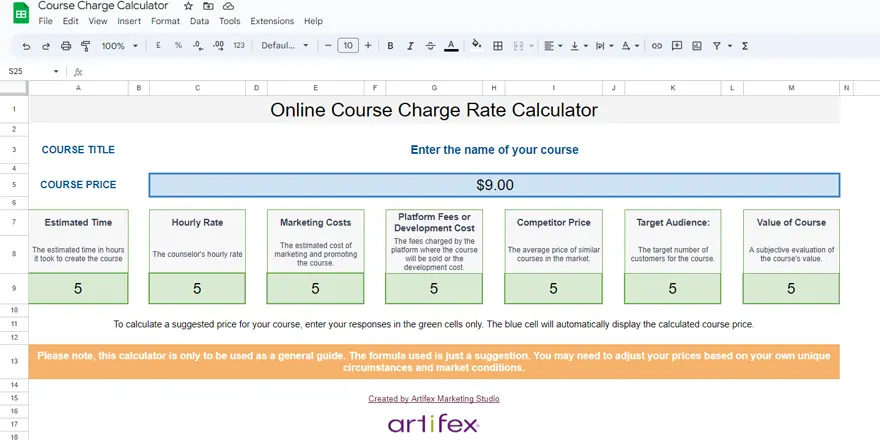If you’re a counselor, coach or consultant looking to monetize your expertise and reach a wider audience, creating an online course can be a great way to do it. However, one of the biggest challenges you will probably face is deciding how much to charge for your course or program. You want to make sure that your pricing is fair and competitive, while also taking into account the value you’re providing and the costs associated with creating and delivering your course.
In this “How To…” guide, we’ll share some tips and strategies you can use to work out how much to charge for your online course, so you can maximize your earnings and help more people achieve personal growth and transformation.
We have even included a FREE Course Pricing Calculator which you can download (no email needed).
Determining the right price for your online course
Offering your course at the “right price” is important for several reasons.
Fair value pricing
First, it ensures that you’re providing a fair price for the value you’re delivering to your customers. If your course is priced too high, it may deter potential customers from purchasing it, while if it’s priced too low, you may be undervaluing your expertise and the value of your course.
Competitive pricing
Second, pricing your course competitively is important to stay relevant in the market and attract customers over your competitors. If your course is priced too high compared to other courses offering similar value, customers are more likely to go with a cheaper option. On the other hand, if your course is priced too low, customers may perceive it as low quality.
Profitable pricing
Lastly, determining the right price for your online course is important for profitability. You need to factor in the costs associated with creating and delivering your course, as well as the time and effort you put into it, in order to make a profit. By pricing your course appropriately, you can maximize your earnings and continue to create high-quality content for your audience.
Given all of the above, just how do you work out what price you should charge?
Factors to consider when pricing your course
There is no set formula that can do this for you and every other course creator. But there are some factors it is recommended you consider when deciding what to charge for your online course:
Assess the Value:
Research Competitors:
Determine Your Costs:
Consider Your Target Audience:
Test Your Price:
Some other factors you could consider include:
- your hourly rate
- the estimated amount of time it took to create the course
- marketing costs to promote it
- and a subjective evaluation of the course’s value
Ultimately, determining the price for your online course is a balancing act between the value it provides and what your audience is willing to pay. By assessing the value, researching competitors, determining your costs, considering your target audience, and testing your price, you can arrive at a pricing strategy that is both profitable and appealing to your target audience.
Ready to Price and Sell Your Online Course?
Let us help you take the next step. Artifex creates websites with a built-in learning platform tailored to your needs, giving you the control and flexibility you need to succeed. Contact us to learn more. Call Tanya on 0414 728 676 or get started with a website development inquiry.
FREE DOWNLOAD
FREE DOWNLOAD: Online Course Charge Rate Calculator
Still need help with your pricing? Try our Course Charge Rate Calculator for FREE.
Enter your own values into the spreadsheet to calculate a suggested price for your course.
The formula takes into account the estimated time and hourly rate, marketing costs, platform fees, competitor prices, target audience, and your subjective evaluation of the course’s value.


